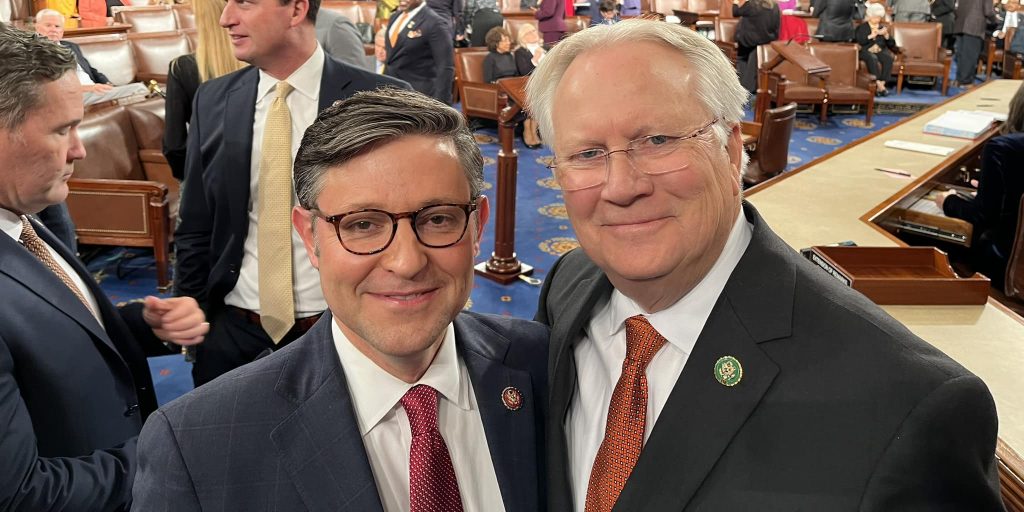Elon Musk has stepped away from DOGE to run his companies full time. Numerous commentators suggest that DOGE has failed. I see DOGE as a crucial step in disrupting Washington’s culture of spending. DOGE could never cut spending by $2 trillion by itself.
Discretionary Federal spending, the portion approved by Congress annually, was only $1.8 trillion in 2024, with the remaining $5 trillion being entitlement programs and interest on the debt. Only Congress can cut spending significantly.
I interpreted Mr. Musk’s $2 trillion claim as meaning they could identify this much spending worth cutting. But this is not DOGE’s unique contribution. Senator Rand Paul documents wasteful spending in his annual Festivus report, with the 2024 edition identifying $1 trillion. Long ago, Senator William Proxmire issued his Golden Fleece awards annually.
DOGE has made two huge contributions to controlling Federal spending. The first is applying AI to tally all the ways our money is misspent. The enormity of the Federal government makes finding all the waste seemingly impossible.
At best we get Government Accountability Office reports on one program, like the $200 billion in pandemic spending lost to fraud. Analyzing Federal databases using AI levels the playing field between We the People and deep state bureaucrats. Fiscal conservatives like Senator Paul and Representative Thomas Massie have a powerful new weapon.
Understanding whether anyone will act on this requires examining the forces favoring spending within representative democracy. We must consider the political equilibrium, meaning the outcome when the forces favoring and opposing spending balance out.
Elected representatives earn support from voters and campaign contributors by spending money. People like free stuff, and Congress plays Santa Claus with our money.
People dislike taxes, so raising taxes generates political opposition. Elected representatives like spending without taxing, threatening democracies with bankruptcy. Many U.S. states borrowed themselves into oblivion in the 1830s, while perhaps one-fifth of cities went bankrupt after the Civil War.
Spending makes friends; taxing makes enemies. Why does spending win out? Spending often benefits a relatively small group who clearly understand how they benefit. Seniors know they receive Social Security and Medicare. Taxes, by contrast, impact broad classes of individuals or businesses.
Additionally, establishing who really pays certain taxes, particularly business taxes, is challenging. Citizens might think that rich capitalists pay corporate income taxes, but that may not be true.
Spending $1 million generates representatives more political benefits than $1 million in taxes costs politically. And spending can be shared with members of Congress and their families. This deepens elected officials’ disinterest in cutting spending.
We the People must disrupt the political equilibrium to regain control over spending. How can this be done? I don’t think anyone has a magic formula. Javier Milei has had success in Argentina with dramatic action. The unconventional actions of Mr. Musk and DOGE have been rather successful.
USAID and the U.S. Department of Education have been largely shuttered. Seventy-five thousand Federal employees took DOGE’s buyout, and thousands of probationary workers were fired. DOGE has reportedly cut $160 billion, although this might end up being restored by Congress or the courts. Many DOGE spending cuts targeted programs progressives leveraged to advance their causes.
Grants to progressive NGOs, for instance, fueled litigation to block new factories and impose progressive cultural values. Universities’ excessive charges of overhead on NIH research grants funded woke administrators.
Going forward, DOGE should prepare recission bills annually for Congress, which must ultimately make the spending cuts. DOGE could return some of this saving, perhaps twenty percent, to taxpayers as refunds. While some fiscal conservatives argue that all spending cuts should go to deficit reduction, the path to budget balance involves growing cuts over time. A DOGE recission bill and refunds would unleash new support for spending cuts.
Uncle Sam spends $7 trillion annually and owes over $36 trillion because politics rewards spending, not fiscal restraint. Mr. Musk and DOGE should be commended for much-needed efforts to disrupt Washington’s culture of spending.
Daniel Sutter is the Charles G. Koch Professor of Economics with the Manuel H. Johnson Center for Political Economy at Troy University and host of Econversations on TrojanVision. The opinions expressed in this column are the author’s and do not necessarily reflect the views of Troy University.













